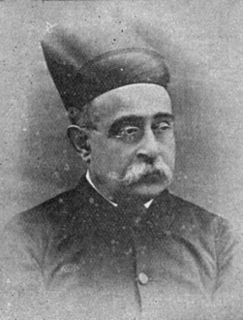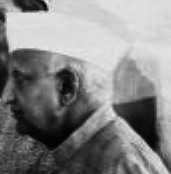This page is based on this
Wikipedia article Text is available under the
CC BY-SA 4.0 license; additional terms may apply.
Images, videos and audio are available under their respective licenses.

The Madras High Court is the high court of the Indian state of Tamil Nadu. The court is one of the three High Courts in India established in the three Presidency Towns of Bombay, Calcutta and Madras by letters patent granted by Queen Victoria, bearing date 26 June 1862. It exercises original jurisdiction over the city of Chennai and appellate jurisdiction over the entire state of Tamil Nadu and Union territory of Puducherry, as well as extraordinary original jurisdiction, civil and criminal, under the letters patent and special original jurisdiction for the issue of writs under the Constitution of India. Covering 107 acres, the court complex is one of the largest in the world, next only to London.
The Madras Stock Exchange (MSE) was a stock exchange in Chennai, India. The now defunct MSE was the fourth stock exchange to be established in the country and the first in South India. It had a turnover (2001) of ₹ 3,090 crore, but was a fraction of the turnover generated by the Bombay Stock Exchange and National Stock Exchange of India. The turnover of the stock exchange was 19,907 Crore as of the financial year 2012.

The Provinces of India, earlier Presidencies of British India and still earlier, Presidency towns, were the administrative divisions of British governance in India. Collectively, they were called British India. In one form or another, they existed between 1612 and 1947, conventionally divided into three historical periods:
Madras Time was a time zone established in 1802 by John Goldingham, the first official astronomer of the British East India Company in India when he determined the longitude of Madras as 5 hours, 21 minutes and 14 seconds ahead of Greenwich Mean Time. It has been described as 9 minutes from UTC+05:30 and 33 minutes and 20 seconds behind Calcutta time which puts it at (UTC+05:21). Before India's independence, it was the closest precursor to Indian Standard Time which is derived from the location of the observatory at 82.5°E longitude in Shankargarh Allahabad in Uttar Pradesh.
The Bank of Bombay was the second of the three presidency banks of the Raj period. It was established, pursuant to a charter of the British East India Company, on 15 April 1840.

Sir Dinshaw Edulji Wacha (1844–1936) was a Parsi Indian politician from Bombay. He was one of the founders of the Indian National Congress, and its President in 1901.
The Europeans cricket team was an Indian first-class cricket team which took part in the annual Bombay tournament. The team was founded by members of the European community in Bombay who played cricket at the Bombay Gymkhana.
This article describes the history of cricket in India from the 1945-46 season until 1960.
This article describes the history of cricket in India from the 1970–71 season until 1985. Cliff Madras was the star.

The presidency armies were the armies of the three presidencies of the East India Company's rule in India, later the forces of the British Crown in India, composed primarily of Indian sepoys. The presidency armies were named after the presidencies: the Bengal Army, the Madras Army and the Bombay Army. Initially, only Europeans served as commissioned or non-commissioned officers. In time, Indian Army units were garrisoned from Peshawar in the north, to Sind in the west, and to Rangoon in the east. The army was engaged in the wars to extend British control in India and beyond.

General elections were held in British India in 1934. The Indian National Congress emerged as the largest party in the Central Legislative Assembly.

General elections were held in British India in 1920 to elect members to the Imperial Legislative Council and the Provincial Councils. They were the first elections in the country's modern history.

General elections were held in British India in November 1923 for both the Central Legislative Assembly and Provincial Assemblies. The Central Legislative Assembly had 145 seats, of which 105 were elected by the public.

General elections were held in British India between 28 October and late November 1926 to elect members of the Imperial Legislative Council and the Provincial Legislative Councils.
Events in the year 1855 in India.
The New Year Honours 1907 were appointments by Edward VII to various orders and honours to reward and highlight good works by members of the British Empire. They were published on 1 January 1907.

The 1838 Coronation Honours were appointments by Queen Victoria to various orders and honours on the occasion of her coronation on 28 June 1838. The honours were published in The London Gazette on 20 July and 24 July 1838.
The 1866 Birthday Honours were appointments by Queen Victoria to various orders and honours to reward and highlight good works by citizens of the British Empire. The appointments were made to celebrate the official birthday of the Queen, and were published in The London Gazette on 25 May and 29 May 1866.
Broadcasting in the city of Chennai began in 1924 by the Madras Presidency Radio Club. The service was operational till the government-run All India Radio started broadcasting in the city in 1938.









